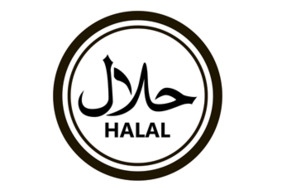Are Vegan Cosmetics Halal?

By Jeanne Yacoubou, MS
Vegan cosmetics, by definition, contain no animal products or animal-derived ingredients from:
- meat
- poultry
- fish
- seafood
- dairy
- egg
- human hair or poultry feathers
- insects (This last category includes honey, shellac, and carmine/cochineal.)
Major Animal Ingredients in Cosmetics
Some of the major animal ingredients which could be found in cosmetics (and which vegans, of course, avoid) include:
- gelatin
- collagen
- squalane oil
- stearic acid
- stearates (magnesium and calcium)
- L-cysteine
- lanolin
- carmine
- shellac
- honey
Several of the ingredients above, or functionally similar ingredients used as substitutes for these in cosmetics, may be sourced from plant materials. Commercially, many of these are today (July 2020).
Squalane oil, for example, traditionally came from shark squalene although this is rare today. Currently, it is commonly derived from rice, wheat or olives. In cases where the listed ingredients are taken from animals, it is usually cows, pigs or fish. If the animals from which these ingredients are derived have not been slaughtered following Islamic guidelines, their meat and meat products (including ingredients) would be considered haram (forbidden) by some Muslim authorities.
Said in another way, some Islamic experts suggest that the ingredients would be halal if and only if you can be sure that the slaughter was carried out correctly. Muslim authorities consider fish or seafood-derived ingredients as permissible to eat, and, therefore, halal. Today, some gelatin and collagen in consumer products (like cosmetics) are derived from fish. Pig-based ingredients are always haram. Cow-derived ingredients may or may not be halal.
Conclusion: Based on this assessment of animal ingredients, there may be cosmetics which are not vegan but would be halal. But there is more to consider when looking at vegan cosmetics and their possible halal status.
No Legal Definition of Vegan
Since there is no legal definition of the term vegan, companies can use or define the word as they’d like without repercussion, and they do. Furthermore, cosmetics are poorly regulated in the United States. That is, companies have few governmental restrictions and regulations on how they source and use their ingredients. Also, all ingredients in the bottle do not have to be listed on its label. Those that are listed do not need to have source (e.g., animal, plant, microbial or synthetic) indicated.
Conclusion: It is always difficult to ascertain without a doubt all of the ingredients and their sources in cosmetics. Therefore, its vegan status is based on trust that what a company tells you is true and complete.
Are Alcohol Ingredients in Vegan Cosmetics Considered Halal?
Alcoholic beverages contain ethanol, making them haram (i.e., forbidden in the Muslim religion). Some cosmetics contain a number of different alcohols including ethanol. There are different opinions on whether ethanol in cosmetics would be considered halal.
Some Muslim authorities say ethanol below 1% as a preservative in food in a substance is halal. This could be a reasonable percentage in a cosmetic and, so, likely halal (by extension).
Other Islamic authorities say “every drop” of ethanol in hand sanitizer is always haram. Also by extension, ethanol in cosmetics would always be haram. Commercial production of ethanol today is almost always plant-based (e.g., corn) making it vegan.
It’s important to note that the Food and Drug Administration (FDA) states that when “alcohol” appears on a label, ethanol is intended.
Strictly speaking, and assuming all other ingredients are vegan, cosmetics containing ethanol are vegan, but are not always halal (depends on your chosen authority).
Cosmetics listed as “alcohol-free,” however, may contain other types of alcohol (just not ethanol). Some of these, such as stearyl alcohol, cetearyl alcohol, or lanolin alcohol, may be produced using animal-derived ingredients. In these cases, the cosmetics would not be vegan. They may or may not be halal (depending on whether the cow’s slaughter or the sheep shearing was religious).
(NOTE: Cetearyl alcohol got its name from its original source: cetaceans (i.e., whales).
Petrochemicals in Cosmetics
Many cosmetics ingredients today, sometimes including ethanol, are derived from petrochemicals (i.e., fossil fuels). These are considered vegan. Similarly, alcohols, including ethanol, are often used to extract botanical oils which are common cosmetics ingredients. Ethanol may be present in residual amounts in the final oil although it usually has evaporated before it’s applied to the face. Even so, this source states these botanicals are not halal because of their processing.
Plasticizer alcohols, also made from petrochemicals, are common in some cosmetics, especially fingernail products. Ethanol is not a common plasticizer alcohol, but it could be used to make ethyl acrylate in these products. This is of concern to Muslims who prohibit all ethanol-derived ingredients. However, the source cited above suggests that ethyl acrylate would be halal because it’s chemically distinct from ethanol (which is no longer present after it’s chemically transformed into ethyl acrylate.)
General Conclusion about Vegan Cosmetics
For all the reasons stated above, there are many issues to consider before calling a cosmetic vegan or halal. The two terms are not synonymous, although they often are.
The best course of action to take when determining vegan or halal status of cosmetics is to ask the company directly. We shared some tips on how to do this in previous blog posts:
https://www.vrg.org/blog/2013/02/11/tips-for-obtaining-ingredient-information-from-food-companies/
The contents of this posting, our website, and our other publications, including Vegetarian Journal, are not intended to provide personal medical advice. Medical advice should be obtained from a qualified health professional. We often depend on product and ingredient information from company statements. It is impossible to be 100% sure about a statement, info can change, people have different views, and mistakes can be made. Please use your best judgment about whether a product is suitable for you. To be sure, do further research or confirmation on your own.
